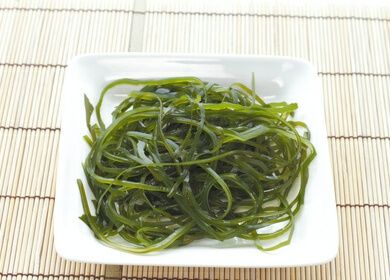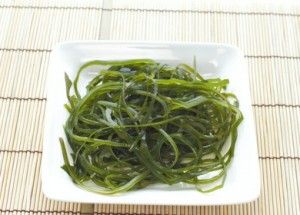
Seaweed is not something that many Americans think about eating, but if you haven’t tried it yet, you should. Seaweed, or sea vegetables, has been a staple in Asian diets for centuries, and it’s among one of the healthiest foods you can eat.
Here is a look at just five of the reasons to add it to your diet.
Packed with Essential Nutrients
Seaweed is about as nutrient rich as it gets. It’s an excellent source of calcium, containing 168 milligrams per 100 grams – more than broccoli and kale – and some types have more of this mineral than cheese. It also contains lots of vitamin B12, folate and magnesium.
Sea lettuce is especially rich in iron; in fact it offers 25 times the amount found in red meat. It even offers one of the best vegetarian sources for protein.
Rich in Antioxidants
Seaweed contains phytonutrient antioxidants, including a number of alkaloids that offer powerful antioxidant properties. It is specifically beneficial for the prevention and treatment of cancer as well as supporting the immune system to help battle the proliferation of cancer cells.
Seaweed is also known to be antiviral, antimicrobial, antifungal and a powerful anti-inflammatory which can help decrease the instance of nearly every chronic illness and disease – and even help slow the aging process.
Best Source of Iodine
Seaweed is considered the most potent source of naturally occurring iodine on earth. Just one gram will meet your daily iodine needs. This micronutrient is one of the hardest to come by, which is why it is added to “iodized” table salt. Iodine helps boost thyroid and brain health.
Many people lack adequate iodine in their diets – yet it is crucial to proper thyroid function. Brown algae, including the most commonly eaten seaweeds like wakame, kelp and arame, accumulate iodine in up to 30,000 times more concentrated form than sea water.
Heart Health and Longevity
Some of the longest living people on earth, the Okinawans, are known to have low cholesterol levels and unclogged arteries as well as low homocysteine levels, which is a heart-damaging chemical. It’s no coincidence that seaweed is a big part of their diet.
Brown seaweeds are also known to lower blood pressure and reduce stroke risk.
 Weight Loss Boost
Weight Loss Boost
A study from 2010 found that the alginate in seaweed has the ability to reduce the rate of fat absorption by 75 percent due to its inhibitory effect on the digestive enzyme lipase.
What this means is that if you consume 100 grams of fat along with alginate, your body holds onto just 25 grams; this is similar to obesity medications, but without the side effects.
In addition, the iodine in seaweed can help support thyroid function, which helps control the metabolic rate of the body’s cells, effectively promoting more efficient calorie burning.
Adding Seaweed to Your Diet
As many sea vegetables can contain high levels of contaminants and other harmful toxins, it’s especially important to seek out certified organic products. Some of the best sources are derived off the coast of Maine.
Nori is considered a sushi staple. You can snack on it as is or crumble it into a salad. Instead of using bread, consider wrapping your veggies in it – many fill it with hummus or guacamole. Kelp can add flavor to just about anything, and is a great replacement for salt.
-The Alternative Daily

